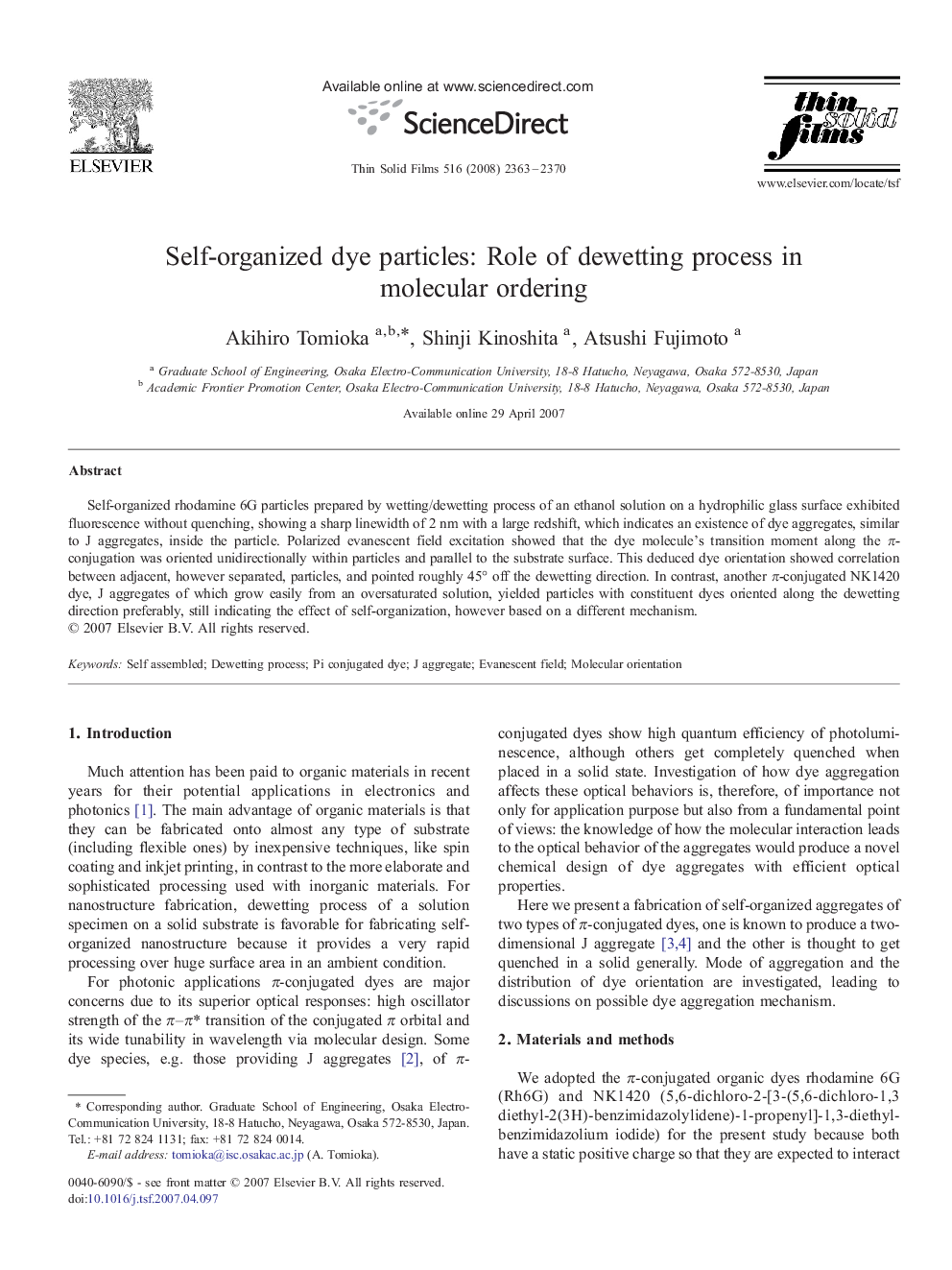| Article ID | Journal | Published Year | Pages | File Type |
|---|---|---|---|---|
| 1674049 | Thin Solid Films | 2008 | 8 Pages |
Abstract
Self-organized rhodamine 6G particles prepared by wetting/dewetting process of an ethanol solution on a hydrophilic glass surface exhibited fluorescence without quenching, showing a sharp linewidth of 2 nm with a large redshift, which indicates an existence of dye aggregates, similar to J aggregates, inside the particle. Polarized evanescent field excitation showed that the dye molecule's transition moment along the Ï-conjugation was oriented unidirectionally within particles and parallel to the substrate surface. This deduced dye orientation showed correlation between adjacent, however separated, particles, and pointed roughly 45° off the dewetting direction. In contrast, another Ï-conjugated NK1420 dye, J aggregates of which grow easily from an oversaturated solution, yielded particles with constituent dyes oriented along the dewetting direction preferably, still indicating the effect of self-organization, however based on a different mechanism.
Related Topics
Physical Sciences and Engineering
Materials Science
Nanotechnology
Authors
Akihiro Tomioka, Shinji Kinoshita, Atsushi Fujimoto,
